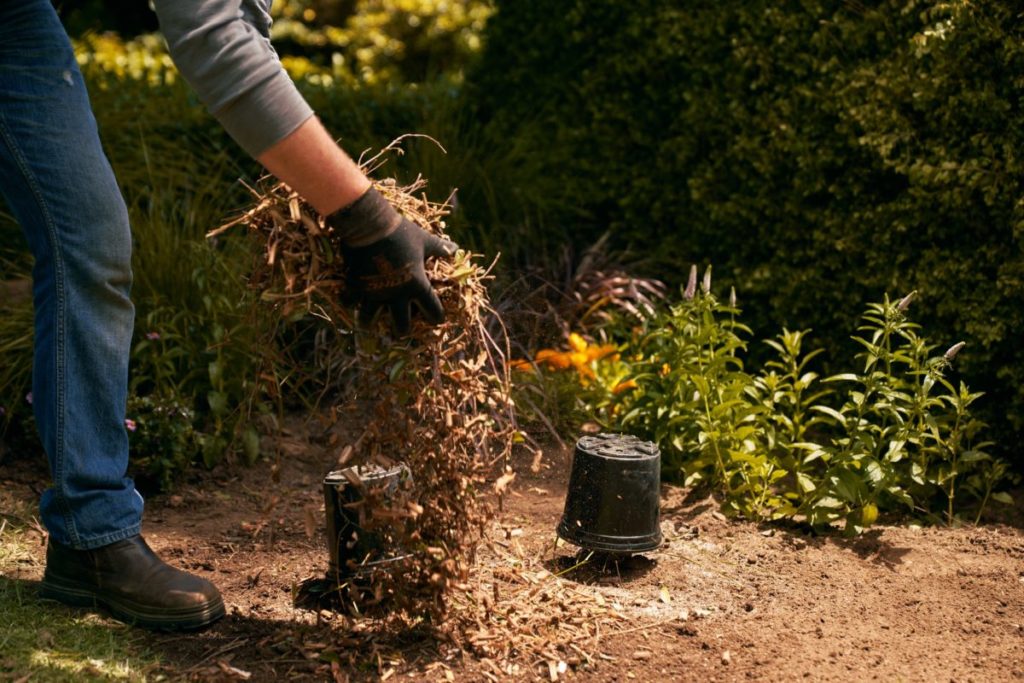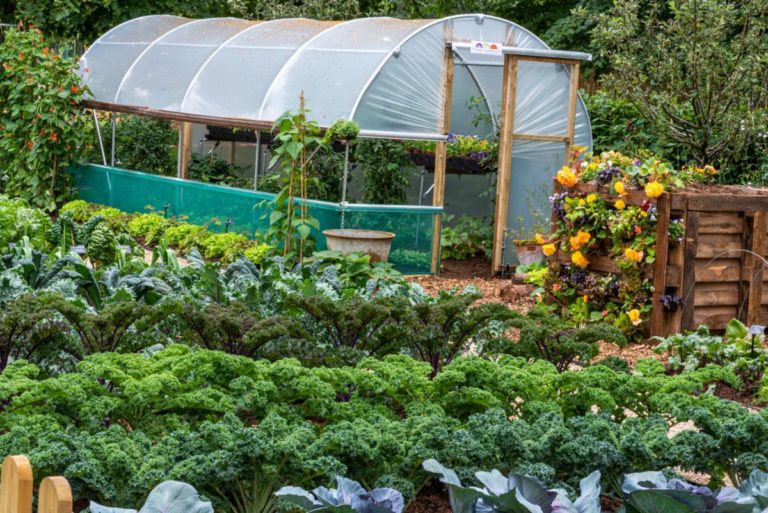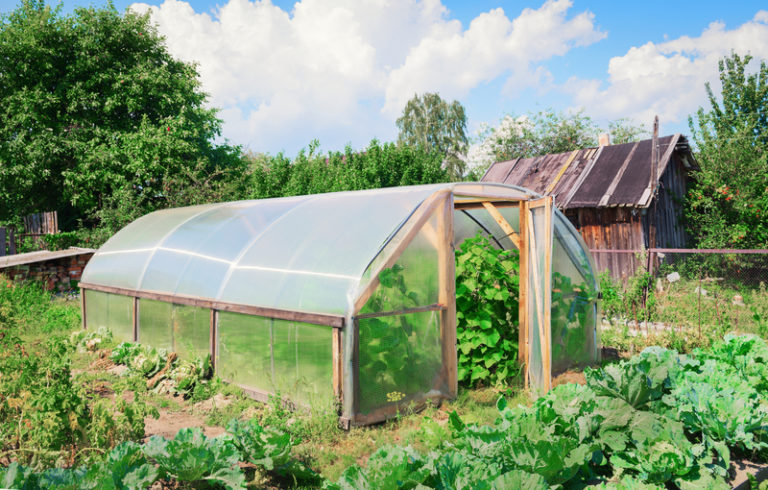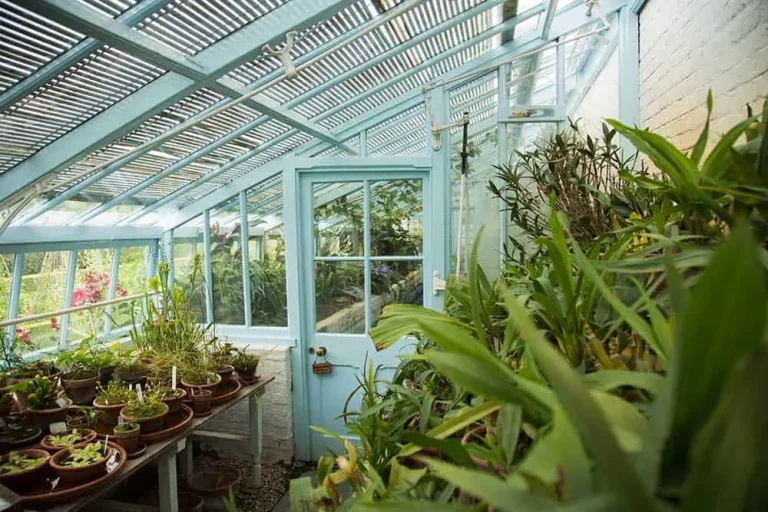Using mulch in your garden can have numerous benefits for plant growth and soil health.
By adding a layer of organic material such as wood chips or straw to your beds, you can retain moisture, suppress weeds, regulate soil temperature, and improve soil structure.
Not only that, but mulching also helps to extend the growing season by protecting roots from extreme temperatures.
With so many advantages, it’s easy to see why incorporating mulch into your gardening routine is a must-do for any serious gardener.
So, let’s dive in and explore just how you can make the most of this powerful resource!
Soil Temperature Regulation
Mulch helps to regulate soil temperature, keeping it cooler during hot summer months and warmer during cold winter months. This promotes healthy root growth and extends the growing season.
During hot summer months, mulch acts as an insulator, preventing the soil from becoming overheated and inhibiting root growth.
By maintaining a cooler soil temperature, mulch promotes the development of robust root systems, which in turn enhances plant vigor and yield.
Conversely, during cold winter months, mulch helps to warm the soil, providing a more hospitable environment for root growth.
By regulating soil temperature, mulch extends the growing season, allowing crops to thrive even in challenging climates.
By moderating soil temperature, mulch reduces the risk of extreme temperature fluctuations, which can be damaging to plant health.
By incorporating mulch into their gardening or farming practices, growers can enjoy healthier, more productive crops, and a longer growing season.
Soil Moisture Retention
Mulch acts as an insulator, retaining soil moisture and reducing the need for frequent watering. This is especially important in drought-prone areas or during periods of low rainfall.
Mulching is an effective way to retain soil moisture and reduce the need for frequent watering, especially in drought-prone areas or during periods of low rainfall.
The mulch layer acts as an insulator, protecting the soil from extreme temperatures and preventing moisture from escaping through evaporation.
This results in a more consistent and stable soil environment, which in turn promotes healthy plant growth and reduces the risk of drought stress.
Mulching helps to improve soil structure, reducing soil compaction and improving aeration, which further enhances the soil’s ability to retain moisture.
By retaining soil moisture, mulching reduces the need for frequent watering, making it a practical solution for gardeners in areas with limited rainfall or those looking to conserve water resources.
Weed Suppression
Mulch can prevent weeds from growing by blocking sunlight and preventing them from germinating. This can save time and effort spent on weeding and improve soil health.
Mulching is a highly effective way to prevent weeds from growing in your garden or landscape.
By laying down a layer of organic material, such as wood chips or bark, you can block sunlight from reaching the soil surface, which inhibits weed seed germination and growth.
This means that you’ll spend less time and effort on weeding, and more time enjoying your beautiful, healthy plants.
The mulch will improve soil health by retaining moisture, suppressing soil-borne diseases, and gradually breaking down to provide nutrients for your plants.
By incorporating mulch into your gardening or landscaping routine, you’ll be rewarded with a low-maintenance, thriving space that showcases your favorite plants.
Improved Soil Health
As mulch breaks down, it adds organic matter to the soil, improving its structure and fertility. This can lead to healthier plants and higher yields.
Adding mulch to your garden or farm can significantly improve the soil health, leading to healthier plants and higher yields.
As mulch breaks down, it adds organic matter to the soil, improving its structure and fertility.
The organic matter acts as a source of nutrients for microorganisms in the soil, which in turn help to break down organic waste and recycle nutrients.
This leads to a more balanced and resilient soil ecosystem, where plants can thrive and grow to their full potential.
Improved soil health also means that plants are more resistant to pests and diseases, reducing the need for chemical pesticides and fungicides.
Improved soil health can lead to better water retention and aeration, reducing the need for irrigation and improving crop resilience to drought.
By incorporating mulch into your soil management strategy, you can achieve healthier and more productive crops, while also promoting sustainable agriculture practices.
Reduced Erosion
Mulch can help to prevent soil erosion, especially on slopes or hillsides, by holding the soil in place and preventing it from washing or blowing away.
Mulching is a powerful tool in the fight against soil erosion, particularly on slopes or hillsides.
When soil is exposed to the elements, it can easily be washed or blown away, leading to significant loss of topsoil and the degradation of the landscape.
Mulch, however, acts as a barrier between the soil and the outside world, preventing soil particles from being carried away by rain, wind, or other natural forces.
By holding the soil in place, mulch helps to maintain the structural integrity of the landscape, preventing soil erosion and promoting healthy plant growth.
Mulch can help to reduce soil compaction and improve soil health, further supporting the stability of the soil and preventing erosion.
By investing in mulching, property owners can protect their land from the destructive effects of soil erosion and ensure the long-term sustainability of their landscape.
Aesthetic Appeal
Mulch can add visual appeal to your garden, enhancing its beauty and curb appeal.
Mulch can add a touch of elegance and sophistication to your garden, elevating its visual appeal and curb appeal.
The varied textures and colors of mulch can create a visually appealing contrast with the surrounding plants and terrain.
For example, a rich, dark brown mulch can add warmth and depth to a predominantly green garden, while a lighter, more silvery mulch can provide a refreshing pop of color and contrast against a backdrop of vibrant flowers.
The tidy, organized appearance of mulch can add a sense of structure and deliberateness to your garden design, giving your outdoor space a manicured look that is both welcoming and inviting.
Whether you choose a natural, earthy mulch like bark or a more decorative option like gravel or pebbles, the right mulch can transform your garden into a visual masterpiece that you’ll be eager to show off to friends and family.
Lowered Maintenance
With mulch in place, you may need to spend less time on maintenance tasks, such as weeding and watering, allowing you to enjoy your garden more.
One of the most significant advantages of using mulch in your garden is the reduced need for maintenance tasks.
With a thick layer of mulch covering your soil, you’ll find that weeding becomes much less of a chore, as the mulch prevents weeds from growing and reduces the need for frequent watering.
This is because mulch acts as an insulating barrier, retaining moisture in the soil and preventing it from drying out too quickly.
As a result, you’ll save time and effort on watering, allowing you to focus on other aspects of your garden or simply enjoy the fruits of your labor without the burden of constant upkeep.
Plus, the weeds that do grow through the mulch will be easier to remove, as they’ll be fewer in number and more accessible.
All in all, using mulch in your garden can significantly lower the amount of time and effort you spend on maintenance tasks, allowing you to reap the full benefits of your gardening efforts with minimal upkeep.
Extended Growing Season
Mulch can help to extend the growing season by retaining warmth in the soil, allowing you to grow cool-season crops later into the fall and earlier in the spring.
Mulching your garden beds can greatly extend the growing season by retaining warmth in the soil.
As the weather cools in the fall, mulch helps to keep the soil at a more consistent temperature, allowing you to grow cool-season crops later into the season than you would be able to without mulch.
This means you can harvest crops like kale, spinach, and broccoli longer into the fall, and even start planting again earlier in the spring.
By creating a barrier between the soil and the air, mulch prevents the soil from cooling down too quickly, giving your crops a longer window of time to grow and thrive.
This extended growing season can lead to higher yields and a more productive garden, all thanks to the simple yet effective practice of mulching.
Want More? Dive Deeper Here!
Hey there! If you’re the type who loves going down the rabbit hole of information (like we do), you’re in the right spot. We’ve pulled together some cool reads and resources that dive a bit deeper into the stuff we chat about on our site. Whether you’re just killing time or super into the topic, these picks might just be what you’re looking for. Happy reading!






